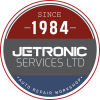It’s important to set realistic expectations when it comes to car repairs. Once we diagnose the problem, we need to get your approval before starting work. Once we get the go-ahead from you, we have to order the parts and then schedule your repair work along with the other work going on in the shop during the day. Once we know what’s wrong with your vehicle, we’ll be able to provide you with an approximate amount of time it will take to repair your vehicle.
Many things in your vehicle break down naturally over time, including your oil and filters. Getting these replaced once a year will ensure your vehicle is ready to be driven whenever you need it.
Modern engines are extremely complex and tricky to repair, so a yearly service will prove a worthy investment in reliability, resale value and cheaper maintenance down the line.
The routine maintenance your car will need and its cost, depends on the vehicle and where you have the work performed. There are some services that almost all cars require periodically.
It depends on a few factors. If the garage is super busy it may not get done right away.
If mechanics aren’t that busy that day you can possibly get in. It also depends on the problem your vehicle has. You can find out the availability of appointments with a simple phone call to 22439802 or 22349165.
The brakes are one of the most important parts of your vehicle and they go a long way to keep you safe behind the wheel. However, it’s often hard to determine whether the noises we hear our brakes making are the result of something simple, like air in the brake line, or if they are a warning sign of imminent brake failure.
Remember, when your service technician recommends any brake repair, it should be completed as soon as possible to avoid danger. Whether you need a simple brake inspection, brake replacement, brake pad replacement or work on the brake discs, brake pads or rotors, we can help. Our technicians are trained to work on specific makes and models, and our prices are often lower than you can find at an independent garage.
It’s true that some repairs do not require immediate attention, but others should not be ignored or postponed. Ask a Jetronic Services if your particular repair needs prompt attention or if it could be handled within a few thousand miles.
Any professional garage will charge for their time and running good diagnostics on a car can take specialist knowledge and training, as well as expensive precision equipment.
The check engine light can indicate lots of different things, from trivial issues to big problems.
The light means that an error code has recorded and is stored inside your vehicle’s onboard computer. To know exactly what’s wrong, you need to bring your car to the garage to have it diagnosed. The car’s computer will not actually tell us what the problem is, but it will show us what system has malfunctioned. From there, we can begin to determine the problem and how to fix it. Once we figure it out, we’ll always explain exactly what’s wrong before we do any work, so that you can make an informed decision.
Car requires services yearly and major maintenance at 7500 miles.
Changing your vehicle’s oil at the recommended intervals is the best thing you can do to ensure it has a long life. The standard frequency is every 6 months or 7,500 km. But it really depends on how you use your vehicle. Running out of oil can be disastrous for your vehicle’s engine and cause costly repairs.
There’s a huge range of oil out there but we generally recommend using fully-synthetic oils as much as possible, particularly in modern engines that run at far higher stress and go through oil at a higher rate.
These oils are far more stable under extreme heat and stress than mineral or semi-synthetic oils, meaning they’re better equipped to protect your engine and ensure its running as efficiently as it can.
The correct tire pressure varies from one car to another. It depends on the vehicle’s weight and a number of other factors. To find out the recommended tire pressure for your vehicle, check the sticker that’s usually found on either the door frame, in the glove box, or inside the fuel cap or check your owner’s manual. Check your tire pressure every month, especially in winter. Tires automatically lose 1 PSI for every 6°C drop in temperature, so if it was 10°C out when your winter tires were installed in October, they’ll have lost 5 PSI by the time the mercury drops to a frosty −20°C! Check the pressure at least monthly, or every time you fuel up
There are two different kinds of parts:
OEM - Original Equipment Manufacturer parts.
Aftermarket Parts - These are not made by the manufacturer, but manufacturers offer certifications to ensure fit, function and safety.
We use only the highest quality parts, regardless of whether they are OEM or aftermarket.


